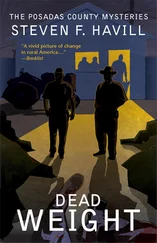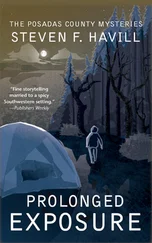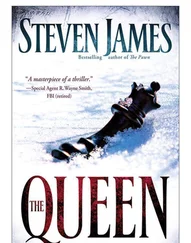Steven Levitt - Freakonomics
Здесь есть возможность читать онлайн «Steven Levitt - Freakonomics» весь текст электронной книги совершенно бесплатно (целиком полную версию без сокращений). В некоторых случаях можно слушать аудио, скачать через торрент в формате fb2 и присутствует краткое содержание. Год выпуска: 2005, ISBN: 2005, Издательство: HarperCollins Publishers Ltd., Жанр: Прочая научная литература, на английском языке. Описание произведения, (предисловие) а так же отзывы посетителей доступны на портале библиотеки ЛибКат.
- Название:Freakonomics
- Автор:
- Издательство:HarperCollins Publishers Ltd.
- Жанр:
- Год:2005
- ISBN:ISBN 0-06-083822-1
- Рейтинг книги:5 / 5. Голосов: 1
-
Избранное:Добавить в избранное
- Отзывы:
-
Ваша оценка:
- 100
- 1
- 2
- 3
- 4
- 5
Freakonomics: краткое содержание, описание и аннотация
Предлагаем к чтению аннотацию, описание, краткое содержание или предисловие (зависит от того, что написал сам автор книги «Freakonomics»). Если вы не нашли необходимую информацию о книге — напишите в комментариях, мы постараемся отыскать её.
Freakonomics — читать онлайн бесплатно полную книгу (весь текст) целиком
Ниже представлен текст книги, разбитый по страницам. Система сохранения места последней прочитанной страницы, позволяет с удобством читать онлайн бесплатно книгу «Freakonomics», без необходимости каждый раз заново искать на чём Вы остановились. Поставьте закладку, и сможете в любой момент перейти на страницу, на которой закончили чтение.
Интервал:
Закладка:
However created, the conventional wisdom can be hard to budge. Paul Krugman, the New York Times columnist and devout critic of George W. Bush, bemoaned this fact as the President’s reelection campaign got under way in early 2004: “The approved story line about Mr. Bush is that he’s a bluff, honest, plainspoken guy, and anecdotes that fit that story get reported. But if the conventional wisdom were instead that he’s a phony, a silver-spoon baby who pretends to be a cowboy, journalists would have plenty of material to work with.”
In the months leading up to U.S. invasion of Iraq in 2003, dueling experts floated diametrically opposite forecasts about Iraq’s weapons of mass destruction. But more often, as with Mitch Snyder’s homeless “statistics,” one side wins the war of conventional wisdom. Women’s rights advocates, for instance, have hyped the incidence of sexual assault, claiming that one in three American women will in their lifetime be a victim of rape or attempted rape. (The actual figure is more like one in eight—but the advocates know it would take a callous person to publicly dispute their claims.) Advocates working for the cures of various tragic diseases regularly do the same. Why not? A little creative lying can draw attention, indignation, and—perhaps most important—the money and political capital to address the actual problem.
Of course an expert, whether a women’s health advocate or a political advisor or an advertising executive, tends to have different incentives than the rest of us. And an expert’s incentives may shift 180 degrees, depending on the situation.
Consider the police. A recent audit discovered that the police in Atlanta were radically underreporting crime since the early 1990s. The practice apparently began when Atlanta was working to land the 1996 Olympics. The city needed to shed its violent image, and fast. So each year thousands of crime reports were either downgraded from violent to nonviolent or simply thrown away. (Despite these continuing efforts—there were more than 22,000 missing police reports in 2002 alone—Atlanta regularly ranks among the most violent American cities.)
Police in other cities, meanwhile, were spinning a different story during the 1990s. The sudden, violent appearance of crack cocaine had police departments across the country scrapping for resources. They made it known that it wasn’t a fair fight: the drug dealers were armed with state-of-the-art weapons and a bottomless supply of cash. This emphasis on illicit cash proved to be a winning effort, for nothing infuriated the law-abiding populace more than the image of the millionaire crack dealer. The media eagerly glommed on to this story, portraying crack dealing as one of the most profitable jobs in America.
But if you were to have spent a little time around the housing projects where crack was so often sold, you might have noticed something strange: not only did most of the crack dealers still live in the projects, but most of them still lived at home with their moms. And then you may have scratched your head and said, “Why is that?”
The answer lies in finding the right data, and the secret to finding the right data usually means finding the right person—more easily said than done. Drug dealers are rarely trained in economics, and economists rarely hang out with crack dealers. So the answer to this question begins with finding someone who did live among the drug dealers and managed to walk away with the secrets of their trade.
Sudhir Venkatesh—his boyhood friends called him Sid, but he has since reverted to Sudhir—was born in India, raised in the suburbs of upstate New York and southern California, and graduated from the University of California at San Diego with a degree in mathematics. In 1989 he began to pursue his PhD in sociology at the University of Chicago. He was interested in understanding how young people form their identities; to that end, he had just spent three months following the Grateful Dead around the country. What he was not interested in was the grueling fieldwork that typifies sociology.
But his graduate advisor, the eminent poverty scholar William Julius Wilson, promptly sent Venkatesh into the field. His assignment: to visit Chicago’s poorest black neighborhoods with a clipboard and a seventy-question, multiple-choice survey. This was the first question on the survey:
How do you feel about being black and poor?
1. Very bad
2. Bad
3. Neither bad nor good
4. Somewhat good
5. Very good
One day Venkatesh walked twenty blocks from the university to a housing project on the shore of Lake Michigan to administer his survey. The project comprised three sixteen-story buildings made of yellow-gray brick. Venkatesh soon discovered that the names and addresses he had been given were badly outdated. These buildings were condemned, practically abandoned. Some families lived on the lower floors, pirating water and electricity, but the elevators didn’t work. Neither did the lights in the stairwell. It was late afternoon in early winter, nearly dark outside.
Venkatesh, who is a thoughtful, handsome, and well built but not aberrationally brave person, had made his way up to the sixth floor, trying to find someone willing to take his survey. Suddenly, on the stairwell landing, he startled a group of teenagers shooting dice. They turned out to be a gang of junior-level crack dealers who operated out of the building, and they were not happy to see him.
“I’m a student at the University of Chicago,” Venkatesh sputtered, sticking to his survey script, “and I am administering—”
“Fuck you, nigger, what are you doing in our stairwell?”
There was an ongoing gang war in Chicago. Things had been violent lately, with shootings nearly every day. This gang, a branch of the Black Gangster Disciple Nation, was plainly on edge. They didn’t know what to make of Venkatesh. He didn’t seem to be a member of a rival gang. But maybe he was some kind of spy? He certainly wasn’t a cop. He wasn’t black, wasn’t white. He wasn’t exactly threatening—he was armed only with his clipboard—but he didn’t seem quite harmless either. Thanks to his three months trailing the Grateful Dead, he still looked, as he would later put it, “like a genuine freak, with hair down to my ass.”
The gang members started arguing over what should be done with Venkatesh. Let him go? But if he did tell the rival gang about this stairwell hangout, they’d be susceptible to a surprise attack. One jittery kid kept wagging something back and forth in his hands—in the dimming light, Venkatesh eventually realized it was a gun—and muttering, “Let me have him, let me have him.” Venkatesh was very, very scared.
The crowd grew, bigger and louder. Then an older gang member appeared. He snatched the clipboard from Venkatesh’s hands and, when he saw that it was a written questionnaire, looked puzzled.
“I can’t read any of this shit,” he said.
“That’s because you can’t read,” said one of the teenagers, and everyone laughed at the older gangster.
He told Venkatesh to go ahead and ask him a question from the survey. Venkatesh led with the how-does-it-feel-to-be-black-and-poor question. It was met with a round of guffaws, some angrier than others. As Venkatesh would later tell his university colleagues, he realized that the multiple-choice answers A through E were insufficient. In reality, he now knew, the answers should have looked like this:
1. Very bad
2. Bad
3. Neither bad nor good
4. Somewhat good
5. Very good
6. Fuck you
Just as things were looking their bleakest for Venkatesh, another man appeared. This was J.T., the gang’s leader. J.T. wanted to know what was going on. Then he told Venkatesh to read him the survey question. He listened but then said he couldn’t answer the question because he wasn’t black.
Читать дальшеИнтервал:
Закладка:
Похожие книги на «Freakonomics»
Представляем Вашему вниманию похожие книги на «Freakonomics» списком для выбора. Мы отобрали схожую по названию и смыслу литературу в надежде предоставить читателям больше вариантов отыскать новые, интересные, ещё непрочитанные произведения.
Обсуждение, отзывы о книге «Freakonomics» и просто собственные мнения читателей. Оставьте ваши комментарии, напишите, что Вы думаете о произведении, его смысле или главных героях. Укажите что конкретно понравилось, а что нет, и почему Вы так считаете.











